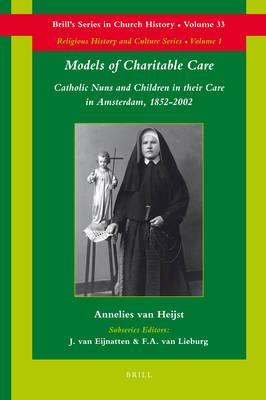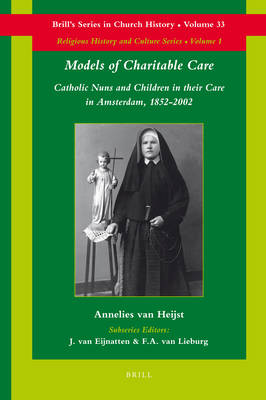
- Afhalen na 1 uur in een winkel met voorraad
- Gratis thuislevering in België vanaf € 30
- Ruim aanbod met 7 miljoen producten
- Afhalen na 1 uur in een winkel met voorraad
- Gratis thuislevering in België vanaf € 30
- Ruim aanbod met 7 miljoen producten
Zoeken
Models of Charitable Care: Catholic Nuns and Children in Their Care in Amsterdam, 1852-2002
Annelies Van Heijst
€ 236,95
+ 473 punten
Omschrijving
Models of Charitable Care analyses the practice of Catholic nuns in Amsterdam in the 19th and 20th century. Attention is paid to the ambiguous ascetic spiritual discourse that underpinned their work: it encouraged charity as solidarity with strangers, but caused intense emotional distance too. Historiography is mainly manufactured by religious and lay academics who shared the congregational perspective and presented fairly positive evaluations. Criticism from within, however, is voiced by care leavers who grew up in homes ran by religious. Some are grateful, others bitter. The sisters were living models who combined an anti-worldly outlook with a practical concern for vulnerable creatures. Relating various theoretical interpretations, a typology of three models is developed with 'agency' as the differentiating criterion.
Specificaties
Betrokkenen
- Auteur(s):
- Uitgeverij:
Inhoud
- Aantal bladzijden:
- 428
- Taal:
- Engels
- Reeks:
- Reeksnummer:
- nr. 33
Eigenschappen
- Productcode (EAN):
- 9789004168336
- Verschijningsdatum:
- 25/06/2008
- Uitvoering:
- Hardcover
- Formaat:
- Genaaid
- Afmetingen:
- 160 mm x 240 mm
- Gewicht:
- 830 g

Alleen bij Standaard Boekhandel
+ 473 punten op je klantenkaart van Standaard Boekhandel
Beoordelingen
We publiceren alleen reviews die voldoen aan de voorwaarden voor reviews. Bekijk onze voorwaarden voor reviews.








